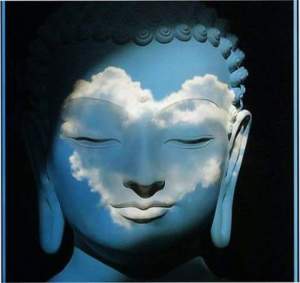A pretty good match for Buddhism’s Three Poisons: Delusion, Hatred, and Greed.

The Order of Pen
March 26, 2024 | Categories: Delusion, Fear, Greed, Hatred, Zen | Leave a comment
In absolute truth, all phenomena are devoid of any intrinsic nature, and therefore merit too cannot be objectified, being entirely free of the three concepts.
In relative, conventional truth, every aspect of a positive action – the agent who performs the action, the object of the action, and the action itself – is like a dream or a magical illusion: although it appears, it has no intrinsic nature.
It is with this approach that the dedication should be made, for as we read in the Middle Sutra of Transcendent Wisdom:
“Subhuti, all phenomena are like a dream,
like a magical illusion.”
Virtue too should be dedicated in the manner of its being like a dream.
from the book “A Torch Lighting the Way to Freedom: Complete Instructions on the Preliminary Practices”
February 14, 2024 | Categories: Dedication, Delusion, Merit, Phenomena, Samsara, Zen | Leave a comment
To know that the mind is empty is to see the Buddha. To see no mind is to see the Buddha.
To give up yourself without regret is the greatest charity.
To transcend motion and stillness is the highest Meditation. Mortals keep moving while the Awakened stay still.
Yet, the highest meditation surpasses both that of Mortals and that of the Awakened.
Individuals who reach such understanding free themselves from all appearances and without effort cure illness without treatment. Such is the power of great Zen.
Using the mind to look for reality is delusion.
Not using the mind to look for reality is Awareness.
Freeing oneself from words is liberation. Remaining unblemished by the dust of sensation is guarding the Dharma.
Transcending life and death is leaving home.
Not suffering another existence is reaching the Way.
Not creating delusions is Enlightenment.
Not engaging in ignorance is Wisdom.
No affliction is Nirvana and no appearance of the Mind is the other Shore.
When you are deluded this shore exists. When you wake up it does not exist.
Mortals stay on this Shore but those who discover the greatest of all vehicles stay on neither this or nor the other Shore.
They are able to leave both Shores. Those who see the other Shore as different from this Shore don’t understand Zen.
Bodhidharma
First Patriarch of Zen
*Excerpt from the Wake Up Sermon
January 16, 2024 | Categories: Delusion, Enlightenment, Mind, Zen | Leave a comment

However strong thoughts may seem, they are just thoughts and will eventually dissolve back into emptiness. Once you recognize the intrinsic nature of the mind, these thoughts that seem to appear and disappear all the time can no longer fool you. Just as clouds form, last for a while, and then dissolve back into the empty sky, so thoughts arise, remain for a while, and then vanish in the voidness of mind; in reality, nothing at all has happened.
~Dilgo Khyentse Rinpoche, quote from On The Path to Enlightenment: Heart Advice from the Great Tibetan Masters, by Matthieu Ricard
November 8, 2023 | Categories: Delusion, Emptyness, Samsara, Thoughts, Zen | Leave a comment
Image

November 2, 2023 | Categories: Delusion, Zen | Leave a comment
Habit is also a factor to be dealt with. The Tibetan term is ‘pa cha che dipa’. Defilement is also, of course, habit, but it is a little bit different. ‘Pa cha che dipa’ is a very subtle obstacle. An example is the way we project our own thoughts, feelings, or motivations on others. This can be very difficult to see and overcome, and it takes effort to do so. When we always find ourselves making the same mistake by misunderstanding others and judging them in an inaccurate, stupid, or uncompassionate way, we are being blocked by this habitual pattern. Later we find out that we were wrong, but usually by then it’s too late, the damage is done. We can only learn from the mistake. These are subtle habitual obstacles stemming directly from the concept of “I”.
from the book “Awakening the Sleeping Buddha”
October 15, 2023 | Categories: Defilements, Delusion, Habit energy, Self, Zen | Leave a comment
It is often seen that human beings can endure problems quite well, but cannot endure success. When we are successful and have everything we desire, it can easily go to our heads. There is a great danger of losing our common sense and becoming careless and arrogant. As it is said, “Nothing corrupts a person more than power.” Very powerful people sometimes become so proud that they no longer care about their actions or about the effect they have on others. Losing any sense of right and wrong, they create severe problems for themselves and everyone else. Even if we have all the success we could dream of—fame, wealth, and so on—we must understand that these things have no real substance. Attachment does not come from having things, but from the way our mind reacts to them. It is fine to participate in good circumstances, provided we can see that they have no real essence. They may come and they may go. When seeing this, we will not become so attached. Even if we lose our wealth we will not be badly affected, and while it is there we will enjoy it without being senseless and arrogant.
from the book “Daring Steps: Traversing The Path Of The Buddha”
November 3, 2022 | Categories: Delusion, Simplicity, Zen | Leave a comment
You think that you can only establish true practice after you attain enlightenment, but it is not so. True practice is established in delusion, in frustration. If you make some mistake, that is where to establish your practice. There is no other place for you to establish your practice.
We talk about enlightenment, but in its true sense, perfect enlightenment is beyond our understanding, beyond our experience. Even in our imperfect practice enlightenment is there. We just don’t know it. So the point is to find the true meaning of practice before we attain enlightenment. Wherever you are, enlightenment is there. If you stand up right where you are, that is enlightenment.
from the book “Not Always So: Practicing the True Spirit of Zen”
September 6, 2022 | Categories: Delusion, Enlightenment, Practice, Zen | Leave a comment

Millions of people in this world are interested in some version of meditation, or yoga, or one of the many so-called spiritual activities that are now so widely marketed. A closer look at why people engage in these practices reveals an aim that has little to do with liberation from delusion, and everything do to with their desperation to escape busy, unhappy lives, and heartfelt longing for a healthy, stress-free, happy life. All of which are romantic illusions. So, where do we find the roots of these illusions? Mainly in our habitual patterns and their related actions. Of course, no one of sound mind imagines any of us would willingly live an illusion. But we are contrary beings, and even though we are convinced we would shun a life built on self-deception, we continue to maintain a strong grip on the habits that are the cause of countless delusions.
– Dzongsar Khyentse Rinpoche
from the book “Not for Happiness: A Guide to the So-Called Preliminary Practices”
November 19, 2019 | Categories: Delusion, Habit energy, Tibetan Buddhism | 2 Comments

Gautama felt as though a prison which had confined him for thousands of lifetimes had broken open. Ignorance had been the jailkeeper. Because of ignorance, his mind had been obscured, just like the moon and stars hidden by the storm clouds. Clouded by endless waves of deluded thoughts, the mind had falsely divided reality into subject and object, self and others, existence and non-existence, birth and death, and from these discriminations arose wrong views—the prisons of feelings, craving, grasping, and becoming. The suffering of birth, old age, sickness, and death only made the prison walls thicker. The only thing to do was to seize the jailkeeper and see his true face. The jailkeeper was ignorance. And the means to overcome ignorance were the Noble Eightfold Path. Once the jailkeeper was gone, the jail would disappear and never be rebuilt again.
The hermit Gautama smiled, and whispered to himself, “O jailer, I see you now. How many lifetimes have you confined me in the prisons of birth and death? But now I see your face clearly, and from now on you can build no more prisons around me, you shall build no house (for me) again. How can you? I have destroyed the very materials by which you build it. All your rafters are broken, your roof-tree is destroyed. My mind has reached the unconditioned (i.e., Nibbana); the end of craving (Arahatta Phala) has been attained. And I am eternally awake.
– Dharmacakrapravartana Sūtra
July 29, 2019 | Categories: Buddhism, Craving, Delusion, Desire, Ignorance, Nirvana | Leave a comment
We possess what is known as basic goodness. Then we develop an overlay of unnecessary tricks and occupations. We develop little tricks to shield ourselves from being embarrassed – or from feeling too painful or naked.
– Chögyam Trungpa
from the book “Great Eastern Sun: The Wisdom of Shambhala”
ISBN: 978-1570628184 – https://amzn.to/1boP9Yt
July 22, 2019 | Categories: Delusion, Tibetan Buddhism | Leave a comment

To understand how delusion arises, practice watching your mind. Begin by simply letting it relax. Without thinking of the past or the future, without feeling hope or fear about this thing or that, let it rest comfortably, open and natural. In this space of the mind, there is no problem, no suffering. Then something catches your attention – an image, a sound, a smell. Your mind splits into inner and outer, self and other, subject and object. In simply perceiving the object, there is still no problem. But when you zero in on it, you notice that it’s big or small, white or black, square or circular; and then you make a judgment – for example, whether it’s pretty or ugly. Having made that judgment, you react to it: you decide you like it or don’t like it. That’s when the problem starts, because “I like it” leads to “I want it.” We want to possess what we perceive to be desirable. Similarly, “I don’t like it” leads to “I don’t want it.” If we like something, want it, and can’t have it, we suffer. If we don’t want it, but can’t keep it away, again we suffer. Our suffering seems to occur because of the object of our desire or aversion, but that’s not really so – it happens because the mind splits into object-subject duality and becomes involved in wanting or not wanting something.
– Chagdud Tulku Rinpoche
from the book “Gates to Buddhist Practice: Essential Teachings of a Tibetan Master”
September 22, 2018 | Categories: Delusion, Mind, Tibetan Buddhism | Leave a comment
greatmiddleway.wordpress.com
March 16, 2018
 Palaces built of earth and stone and wood;
Palaces built of earth and stone and wood;
the wealthy endowed with food and dress and finery;
legions of retainers who throng around the mighty—
they are like castles in the air, like rainbows in the sky,
and how deluded those who think of these as truth!
—Buddha Shakyamuni
March 16, 2018 | Categories: Buddhism, Delusion | Leave a comment
 Palaces built of earth and stone and wood;
Palaces built of earth and stone and wood;



















Recent Comments